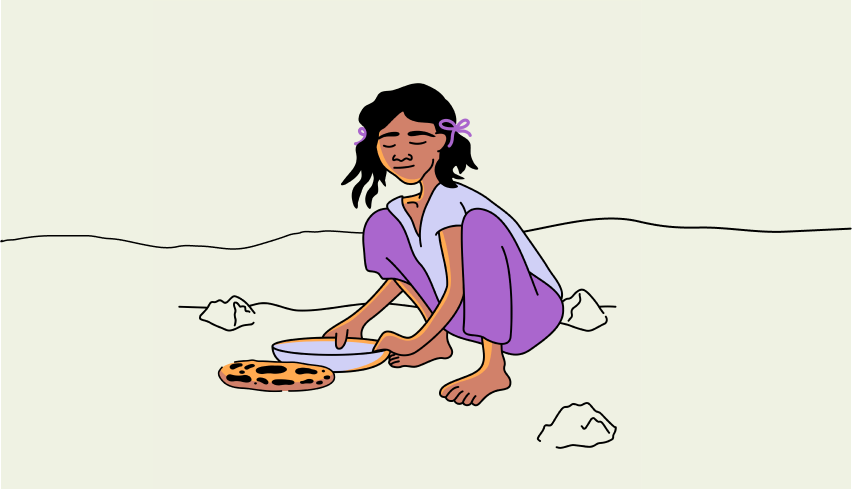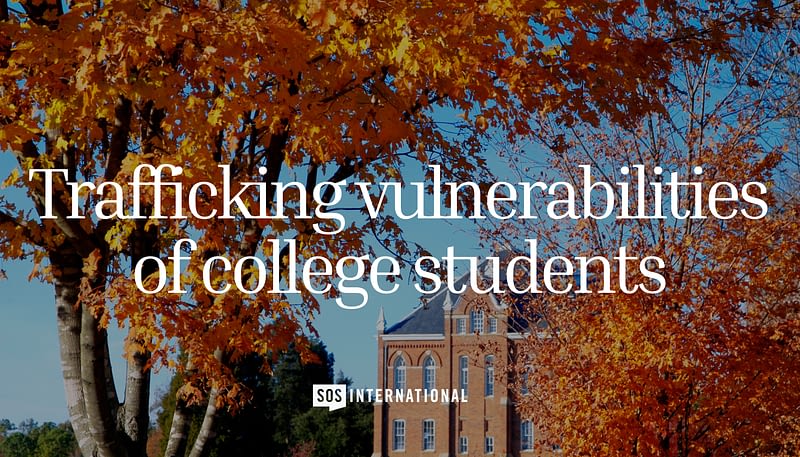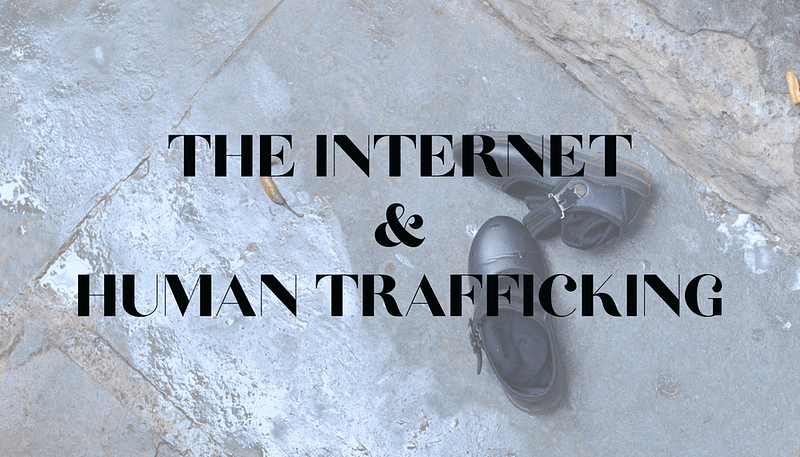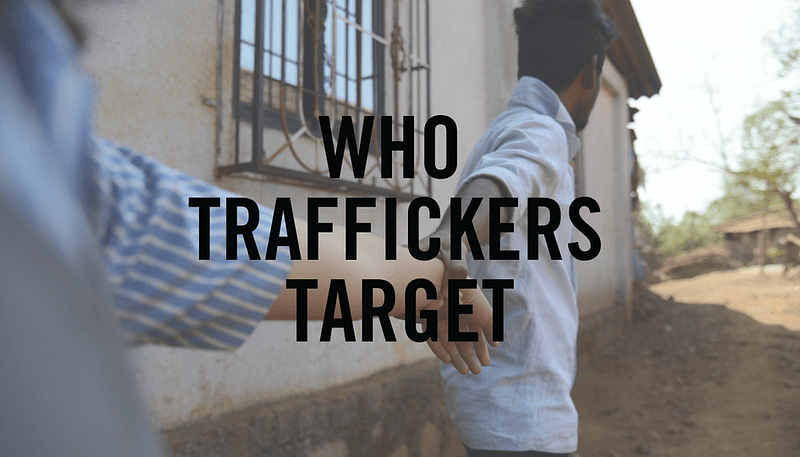Written By: SOS International
College years are considered some of the most memorable. There’s something energizing about working towards a career, attending college sports, and being on your own for the first time. However, for many, the shift in life that comes from starting college can become a time of vulnerability. Here is what you should know about trafficking on college campuses and how you can keep yourself safe.
Financial Changes:
Financial and economic vulnerability is the most common vulnerability that traffickers exploit. This is no different on college campuses, and the reality of financial changes is ever-present on college campuses. Many students take out student loans to pay for their education, as almost 6 out of 10 students who graduate end up with some amount of loan debt. Even though the loan repayment period may not start until after graduation, the pressure of having loans can burden many students.
Traffickers exploit financial instability in a couple of ways – by offering job opportunities or forming relationships. Many college students look for off-campus jobs to make money in school since there are more options than on-campus jobs and work-study programs. Traffickers are known to post fake job listings to find victims. These counterfeit listings are usually easy to spot, however. They frequently offer unusually high pay and travel benefits or provide little or vague information about the job. You’ll often see these fake job listings in online ads, on social media, or on yard signs beside busy roads.
Taking Advantage of a New World
Newer college students can be especially susceptible to traffickers because they may lack a solid social network. Being away from family, in a new place, and hardly knowing anyone can be overwhelming. While college is a time to make new friends and build a community, traffickers can take advantage of your unfamiliarity, posing as someone who wants to be a friend. They can exploit your lack of familiarity with the town or your limited social circle, making it easier for them to build a relationship with their possible victim and potentially exploit them later.
Another group that is likely new to their college town is international students, who are particularly vulnerable to human trafficking on college campuses. Traffickers often target individuals who have recently moved to a new country, taking advantage of their distance from family and friends and their possible unfamiliarity with the local culture. These students may be exploited due to language and cultural barriers, and traffickers may even attempt to use their immigration or student visa status against them. It’s crucial for international students to be aware of their rights and to protect themselves from potential exploitation.
The dangers of the college party culture
Another area of vulnerability in college culture is the party scene. College parties often involve alcohol and drugs, and while this is seen as part of the fun college experience, it can also make students vulnerable to traffickers. Traffickers frequently try to exploit students by getting them addicted to drugs or alcohol or taking advantage of those already struggling with addiction. They use these vulnerabilities to manipulate and control their victims. Addiction is one of a trafficker’s greatest allies.
Additionally, the party culture provides traffickers with opportunities to interact with college students off campus, making it easier for them to exploit and prey on students. To stay safe, it’s important to know your limits, surround yourself with trusted friends, and seek help for any addiction. Taking care of your health and safety is crucial to avoiding danger.
Build your awareness, not fear
The biggest thing you can do as a college student is to develop discernment and trust your gut. If something feels off, trust that feeling! If you are going to college in a new city, take the time to vet new friends in safe places like on campus or at public events. Don’t be afraid to distance yourself from anyone trying to befriend you if something feels off. If a job seems shady or something feels wrong in the interview process, avoid it or ask college staff if they know about the company.
Finally, it’s important to be mindful of what you share on social media and who you accept as followers. Traffickers use social media to target and connect with potential victims, making the internet the most common hunting ground for traffickers. Your online activity could make you more vulnerable to traffickers than anything else.
If you want to learn more about the tactics that traffickers use, check out “ The Internet + Human Trafficking”





